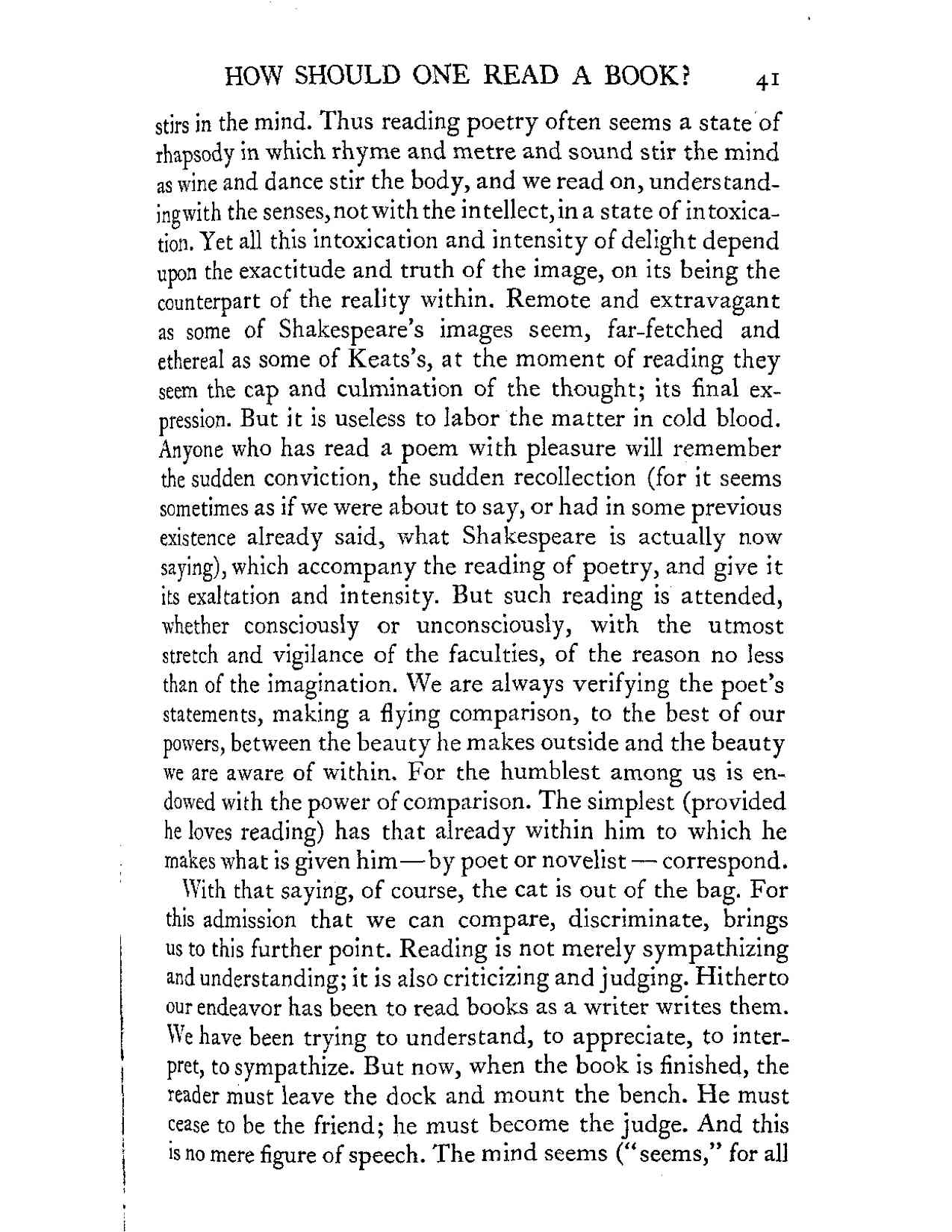
stirs in the mind. Thus reading poetry often seems a state of
rhapsody in which rhyme and metre and sound stir the mind
as wine and dance stir the body, and we read on, understand-
ing with the senses, not with the intellect, in a state of intoxica-
tion. Yet all this intoxication and intensity of delight depend
upon the exactitude and truth of the image, on its being the
counterpart of the reality within. Remote and extravagant
as some of Shakespeare’s images seem, far-fetched and
ethereal as some of Keats’s, at the moment of reading they
seem the cap and culmination of the thought; its final ex-
pression. But it is useless to labor the matter in cold blood.
Anyone who has read a poem with pleasure will remember
the sudden conviction, the sudden recollection (for it seems
sometimes as if we were about to say, or had in some previous
existence already said, what Shakespeare is actually now
saying), which accompany the reading of poetry, and give it
its exaltation and intensity. But such reading is attended,
whether consciously or unconsciously, with the utmost
stretch and vigilance of the faculties, of the reason no less
than of the imagination. We are always verifying the poet’s
statements, making a flying comparison, to the best of our
powers, between the beauty he makes outside and the beauty
we are aware of within. For the humblest among us is en-
dowed with the power of comparison. The simplest (provided
he loves reading) has that already within him to which he
makes what is given him—by poet or novelist—correspond.
With that saying, of course, the cat is out of the bag. For
this admission that we can compare, discriminate, brings
us to this further point. Reading is not merely sympathizing
and understanding; it is also criticizing and judging. Hitherto
our endeavor has been to read books as a writer writes them.
We have been trying to understand, to appreciate, to inter-
pret, to sympathize. But now, when the book is finished, the
reader must leave the dock and mount the bench. He must
cease to be the friend; he must become the judge. And this
is no mere figure of speech. The mind seems (“seems,” for all






